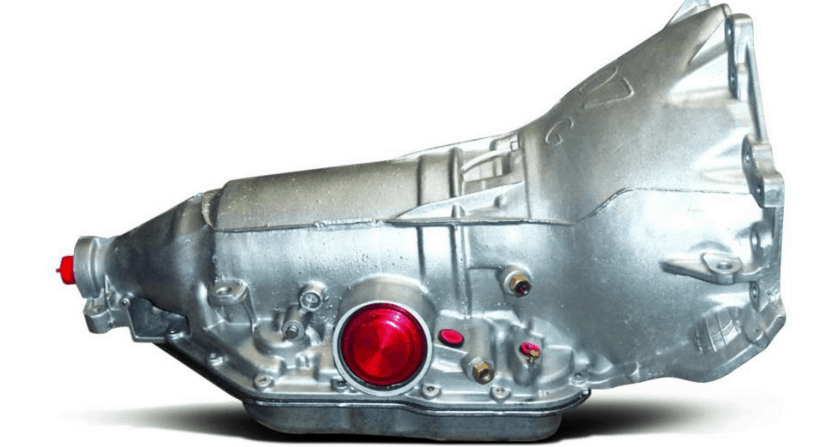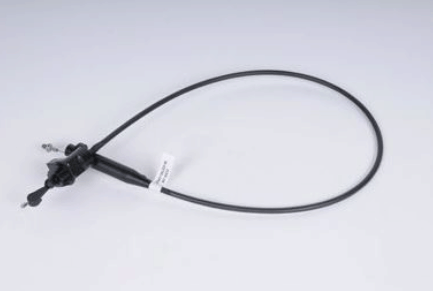The 200-4R is a transmission that was manufactured by General Motors for the 1981 model year. It is a the lesser known of the two overdrive transmissions made by GM in 1980’s, and is still considered part of the Turbo-Hydramatic series. The 200-4R is very similar to the 700R4, although there are some differences between the two of them. The TH200-4R has the smaller footprint of the two, and is very similar in size to the TH350. This allowed it to easily be used in vehicles designed with the TH350 in mind.
It was produced with the usual Chevrolet bellhousing bolt pattern, but was also produced with the Buick, Oldsmobile, and Pontiac patterns as well. The 200-4R has a reputation as being the weaker of the 200-4R/700R4 siblings. There may be some truth to that. But a 200-4R from the end of its production run is going to be a lot more dependable than an early 700R4 and vice versa. Just keep that in mind. Also, it’s a no brainer when it comes to aftermarket transmissions. Just look at the torque capacity that they offer and go from there. As long as you go with someone reputable, the issue of these transmissions inherit effects have been ironed out for quite a long time. All 200-R4’s utilize a mechanical speedometer gear. This makes swapping it into a vintage muscle car even easier.

The best factory 200-4R transmissions can be found in the Monte Carlo SS and Oldsmobile 442 that were released in 1986 and 1987. They all came with locking torque converters. This allowed for no slipping of the transmission at highway speeds. This allowed for further economy improvements. The 200-4R really was not a necessary compliment to the 700R4. They both achieved the same function. It’s main reason for existence at all was to fit into the engine bays of existing models that the 700R4 could not accommodate.
[the_ad id=”1070″]
2004R Specs
- Fluid Capacity: 11 Quarts
- Speedometer type: Mechanical
- Pan Bolts use 13mm heads
Manufacturer: General Motors Production: 1981 through 1990 Type: 3 Speed Automatic Gear Ratios:First- 2.74:1 Second- 1.57:1
Third- :1
Fourth- .67:1
Reverse- 2.07:1
Input Shaft: 27 spline Output Shaft: 27 spline
Torque Converter Lock: Yes Overdrive: Yes Case Length: 27 11/16” Outer Case Material: Aluminum, fused with bellhousing Controlled by Computer: No. It’s controlled by a TV Cable and a locking torque converter. More on that below. Weight: Roughly 118 pounds with no torque converter or ATF Pan Bolts use 13mm heads
Fluid Capacity 11 quarts
TV Cable
The 200-4R Transmission uses a Throttle Valve or “TV” Cable just like the 700R4. Sometimes it is referred to as the detent cable. The TV cable serves as a combination of kick down cable and throttle position sensor. Adjusting the TV cable is a relatively simple process. It involves pressing a half-moon looking button that changes the geometry between the transmission and throttle blade. Here is a great write-up on the TV cable and adjusting it. It is very old and simple but tells you exactly what you need to know regarding adjustment and how exactly it works.
Many people have complained about the reliability of the 200-4R. These transmissions will wear out before they otherwise would if the cable is not properly adjusted. If you are swapping into a vehicle that was not originally equipped with the 200-4R, make sure that your detent cable matches your throttle bracket, which should also match your carburetor or fuel injection.
Adjusting the TV Cable can be quite the challenge. Here is a good resource on how to perform that adjustment. http://www.tciauto.com/media/custom/upload/700R4-2004R_TVCableAdj.pdf
[the_ad id=”1070″]
200-4R Gear Ratios
- First: 2.74
- Second: 1.57
- Third: 1.00
- Fourth(Overdrive): 0.67
- Reverse: 2.07
200-4R Identification
The 200-4R uses a 16 bolt pan. If you are able to count the pan bolts, it is far and away the easiest way to identify it. At this point you should be confident that you are looking at either a 700R4 or a 200-4R. The pans look wildly different and will make identification a snap from here. The 200-4R pan gets smaller toward the end, whereas the 700R4 is almost a perfect square. Owing to the fact that they have very similar dimensions, the 200-4R is often mistaken for the TH350. Be aware that the TH350 has 13 bolts, and a more square transmission pan. You’ll also notice the TV Cable coming from it. The TH350 has a modulator to the right of the tail shaft if you are looking at it from the back.
Frequently asked questions about 200-4R
- What is the fluid capacity? The total fluid capacity of the 200-4R is 11 quarts. Roughly 4 of them are going to be the fluid that you put into the converter. Certainly there can be some minor differences between applications. Some transmission come with high-capacity pans. Some have had an aftermarket transmission cooler installed. That can be good for an extra quart unto itself. The good news is that is why there is a dipstick, so just make sure you aren’t over capacity.
- What are the differences between the 200-4R and 700R4? There are as many differences as there are similarities between these two transmissions. They both were released in the early 80’s as an answer to publics desire for cars with better fuel economy. They do not have the same gearing. The 2.74 first gear in the 200-4R is much closer to the TH350(2.52) than the 700R4(3.06). The TH350 and 200-4R share both the same length of 27 11/16″ and width at the bellhousing of 19 1/8″. They both also share the same 27 spline output shaft as well. This makes the 200-4R nearly a bolt in replacement of the TH350 and certainly takes less effort than the 700R4 does to swap in. The overdrive gear on the 200-4R is also more aggressive(.67 vs .70), which allows the engine to turn 3% slower down the highway.
- Is the 200-4R computer controlled? No, it is not.
- Can I use my old speedometer cable? The 200-4R utilized a mechanical speedometer for its entire production run. So, you should have no issue using it with an old mechanical speedometer. Just be aware that you may need to change the gearing on the speedometer cable in order to get the speedometer to read properly.

